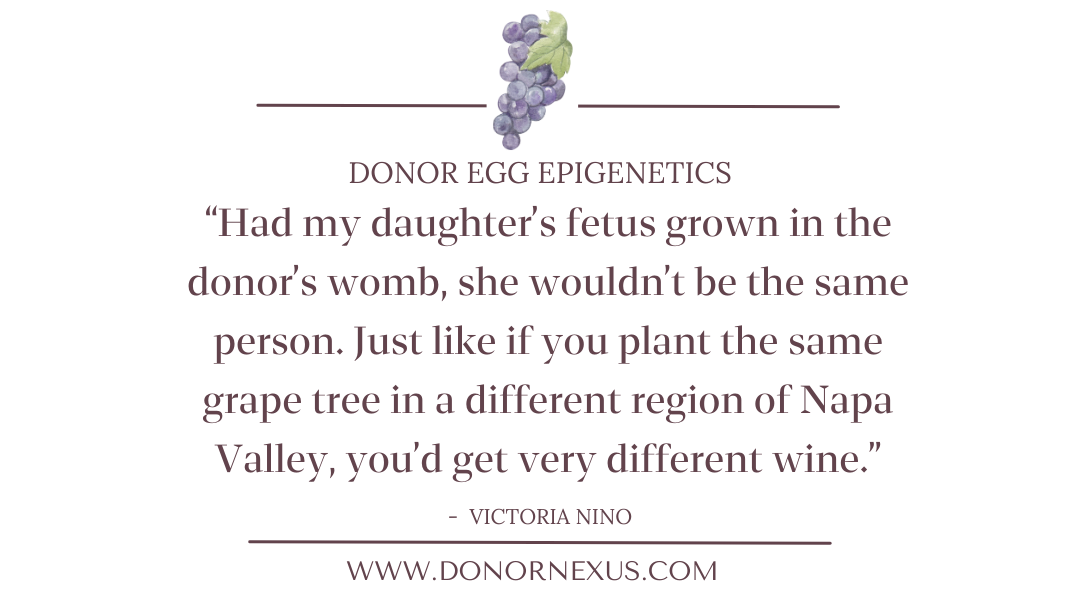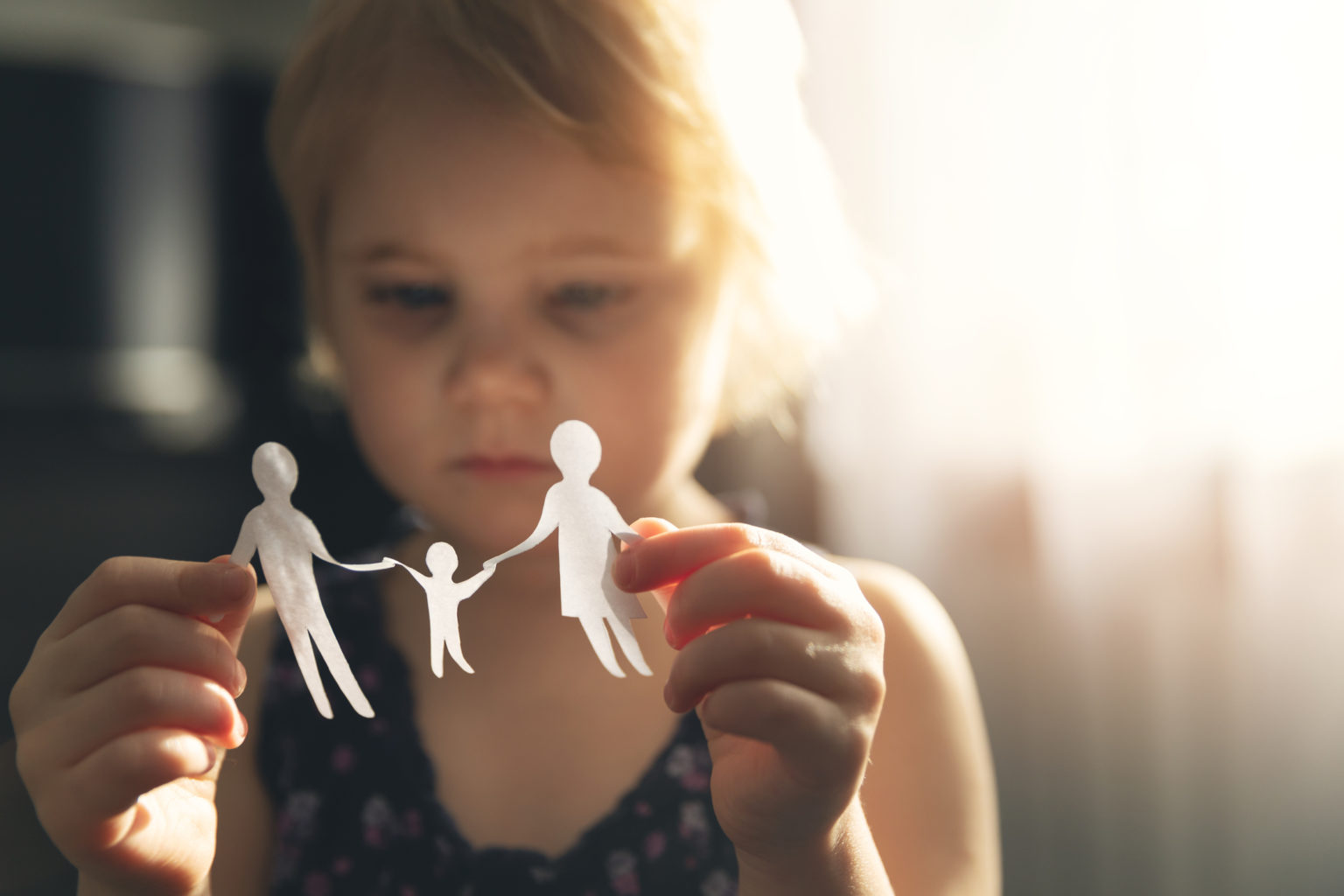 Sep 01, 2023 | by Lucy Solie-Vilker, Program Director
Sep 01, 2023 | by Lucy Solie-Vilker, Program Director
Deciding to donate your eggs is a deeply personal choice that requires thoughtful consideration. As potential donors consider the implications, it’s natural to wonder about the genetic connection they will share with the child(ren) born from their donated eggs. In this blog post, we will address a common question: if I donate my eggs, will the child be biologically mine?
If I Donate My Eggs, Will the Child be Biologically Mine?
If you donate eggs, the child born from your donation will inherit 50% of their DNA from you, meaning they will share your genetic material and potentially exhibit some of your physical traits and characteristics. However, legally and socially, the child is considered the biological child of the recipient(s), known as intended parents, who receive the donation.
Why is the Donor Egg Recipient Mother Considered the Biological Mother?
Even when a donor egg is used for conception, the birthing mother is considered the biological mother. While the egg donor provides 50% of the genetic material (the other half is from the sperm), she does not have a biological connection in terms of gestation – the process of developing inside the womb from conception to birth.
The recipient mother and baby share a biological connection that begins as soon as the embryo is implanted and continues throughout the pregnancy. This connection is established and nurtured as the embryo grows into a baby. In most cases, the recipient mother carries the pregnancy, but sometimes a surrogate may be involved.

Epigenetics — The Birth Mother's Influence on the Baby's Development
While the egg donor contributes the genes, the study of epigenetics reveals that the prenatal environment influences how these genes develop. As the birth mother (or surrogate) carries the baby to term, factors from their body affect the baby's gene expression. The activity levels of some genes may be turned down (“dimmed”) or turned up in response to external cues from the environment in the womb. As explained by mother via donor egg,

Through biology, I gave my daughter everything she needed. She had a healthy DNA blueprint from her egg donor and her father, but my body gave her life and nurtured her into the human she is. Genetics gave her her physical appearance (a beautiful one, I might add), but epigenetics is what made her who she really is, at her core, her essence, her grit, her compassion. I continue to discover new biological connections I have to her as she grows, which started the moment she was born - my mom kept talking about how much she smelled like me when I was a baby, and at the time, I figured it was just a normal baby smell, but later learned it’s an actual biological connection we share.
~ Victoria Nino
Donor Egg Mama Explains Epigenetics and Her Bond With Her Child
We're excited to share a video from the viewpoint of a recipient mother, showcasing the profound impact egg donation has on the lives of others. The video also explains the concept of epigenetics from her unique perspective.
So, What is the Role of the Egg Donor?
If you donate eggs, is the child "yours"? Does donating eggs mean you have kids? These questions can arise when people first learn about egg donation, and it's important to understand the details and terminology involved. Egg donors make a significant contribution that allows others to become parents, but the egg donor's role is completely separate from that of a parent.
Essentially, the egg donor provides the genetic material necessary for conception but does not play a parenting role in the child's life.
The egg donor does not have any legal or parental rights to the child, as established through a legal contract prior to the donation process. The intended parents are recognized as the child's legal guardians and listed as such on the child's birth certificate. The egg donor has no parental rights or responsibilities. This distinction is well-understood among parents, donors, and children, ensuring there is no confusion about parental roles.
Will the Child Look Like Me?
While a donor egg child may resemble the egg donor in some ways, especially if the intended parents chose an egg donor who looks similar to the mother, each child is unique and will have their own combination of traits.

Privacy in Egg Donation: Will the Child Know Who I Am?
Egg donations vary in terms of privacy and openness, depending on the preferences and agreement between the intended parent(s) and the donor. The intended parent(s) and child(ren) born from donor eggs may or may not have access to the donor’s identity. In some cases, the child may learn the donor's identity once they turn 18.
In a Nonidentified donation, the donor and intended parent(s) do not exchange identifying information. In Open/Open ID donations, where some level of contact is allowed, the donor's role remains limited. The donor might receive occasional updates or answer questions from the parents, and the child may reach out at age 18, but interactions are typically minimal.
Learn more: Egg Donation Explained: Nonidentified, Identified, Open ID
At Donor Nexus, donors can indicate their preferences on the application and choose whether to share their contact information. We also provide our egg donors with free legal counsel to ensure they are fully informed.
Please note that with advancements in commercial genetic testing, we counsel our egg donors and intended parents to understand that permanent anonymity cannot be guaranteed in the future.
How Do the Parents Explain the Egg Donor to Their Child?

Parents who use donor eggs often explain to their child(ren) that the donor provided a special gift that allowed them to be born. They emphasize that the donor, while important, is not to be considered a "mother" in any respect. This helps to clarify the donor's role and ensures that the child understands the loving and intentional way they were brought into the world.
How Are Donated Eggs Used?
After the egg donation process, donated eggs are used by recipients, known as "intended parents," in an in vitro fertilization (IVF) treatment. The egg donor undergoes the initial steps of IVF — ovarian stimulation and egg retrieval — similar to what a mother would experience using her own eggs. Once the egg retrieval procedure is complete, the donor's part in the process is finished.
In a fresh cycle, the egg donor is matched with one set of intended parents. The retrieved mature eggs are immediately fertilized by the designated sperm in a laboratory, and the resulting embryo(s) are then transferred into the uterus of the intended mother or a gestational carrier. Alternatively, the embryo(s) can be frozen for future use. As an egg banking donor, the retrieved mature eggs are immediately vitrified (frozen) and added to our egg bank to be chosen by intended parents.

Flexible Egg Donation Programs, Personalized Experience — Donor Nexus
Understanding the unique dynamics of egg donation can help you make an informed decision and navigate the emotional aspects of the process. Donating your eggs is a compassionate act that provides hope and the opportunity for individuals or couples to experience the joys of parenthood.
At Donor Nexus, we empower our egg donors with flexible options and a personalized experience. Whether you prefer waiting to be selected for a fresh one-on-one donation or jumping right in with an egg banking cycle, the choice is yours. If you are considering donating your eggs, we invite you to learn more about our egg donor requirements, egg donation programs, and apply today!
Find additional resources in our blog:
Ready to Get Started?
Apply online today and our team will be in touch to discuss the next steps!
Apply Now »
My dreams have come true!
“The first family I was matched with was seriously life-changing to me and I was so honored I was able to be chosen by that family. I HIGHLY recommend Donor Nexus if you're looking to donate or even become a family to receive.”
– Donor H.G.


